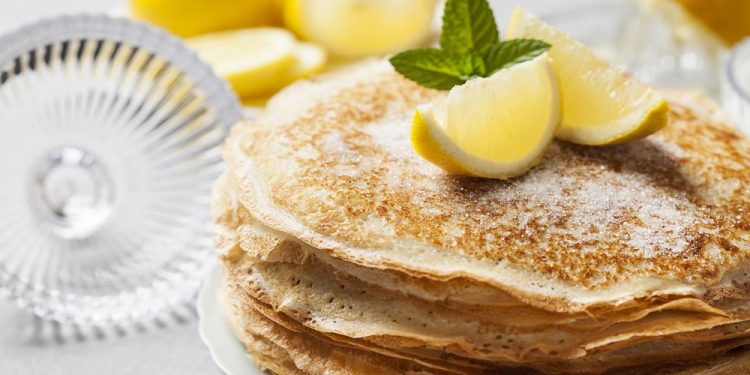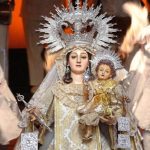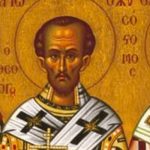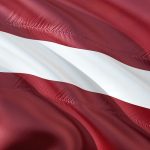
Fat Tuesday (Shrove Tuesday / Pancake Day)
Fat Tuesday, also known as Shrove Tuesday or Pancake Day, is a holiday observed in many different Christian countries around the world. It is celebrated by Anglicans, Lutherans, Methodists, and Roman Catholics alike. The purpose of this day is for the religious to self-examine their wrongdoings and repent them.
It is also a day on which people are encouraged to look to the areas of their lives where they can expand on their spiritual growth or the areas in which they might need help from God to address. This movable feast is determined by Easter’s placement on the calendar.
It is observed on the day before the first day of Lent (Ash Wednesday) and many people spend the day not only in religious reflection but also in eating pancakes and other such delicious treats.
The History of Fat Tuesday
Even though Fat Tuesday celebrations are associated with Christianity, that wasn’t always the case. Many of the practices associated with this holiday can be traced back to pagan traditions, particularly those of the Slavs from Poland, Russia, and Ukraine.
During a certain festival, people would consume a pancake-like dessert that was symbolic of the sun. They believed that by consuming these pancakes, they could help their god of fertility overcome the power of winter and fight back against the cold and darkness.
The people who lived in the Slavic region needed the warm rays of the sun to help them grow their crops, and they believed that their god Jarilo could fight off the winter with their help.
The Slavic people would make sun-shaped pancakes that they believed contained the special power of the sun and gave their god Jarilo just what he needed to fight back the cold dark nights of winter and bring the sun back to help their crops grow.
When Christianity began to spread across Europe, this tradition was incorporated into Christian traditions. During this time, people would perform an act known as a Shrive. This was a way for people to confess their sins and commit an act of penance that would lead to their absolution.
One way they could seek absolution for their sins was by removing rich or luxury items from their diet before the beginning of Lent. This resulted in the pagan practice of eating pancakes to bring back the sun and the Christian practice of penance being conflated into one day.
Why did Christians practice religious fasting during Lent? The practice of giving something up for Lent started in 600 A.D. when Pope St. Gregory prohibited Christians from eating all forms of meat and animal products during Lent. In some places, Christians also gave up sweets. This practice of giving up something
The cultural, social, and religious significance of pancakes continued throughout the Middle Ages. People would often give up meat, eggs, and milk the day before the beginning of Lent. This was not only an act of penance but also allowed people to use up their stores of foodstuffs that wouldn’t last over the course of the 40-day fasting period.
To make sure that they used up certain stores, they would combine some ingredients together in certain recipes. And one of those recipes was for pancakes. Pancakes were a common dish to eat the day before Lent because they used up the fats, milk, and eggs that the common household might have on hand.
If you mix those ingredients together with a little bit of flour, then you end up with a pretty basic pancake recipe. One common recipe that was made at the time was white pancakes made with butter, eggs, milk, and red wine. In many English towns, there are events known as pancake races, and these races go all the way back to the Middle Ages as well.
According to the most popular stories about the origins of pancake races in England, these races were invented when a woman on Fat Tuesday became so involved with making pancakes that she forgot to go to Fat Tuesday services.
When she heard the church bells for service, she ran out of the house with a pan containing a pancake in one hand. As she ran, she flipped the pancake so it wouldn’t burn. Nowadays, several hundred years later, English towns have all sorts of pancake races on this day.
Facts About Pancakes
Since pancakes are a fundamental part of most Fat Tuesday celebrations, we thought it would be appropriate to spend some time talking about pancakes. Although most households will eat pancakes at least a few times a year, if not every day, you would think that most people would know everything there is to know about pancakes.
However, we found that not to be the case and have discovered some little-known facts that we think everyone can appreciate.
- Pancakes were first made by the Romans. They made a concoction known as Alita Dolcia. This dish was made from flour, eggs, milk, and spices.
- The first time that the word “Pancake” in English was used was during the 15th century.
- Although maple syrup would end up being the preferred topping for many pancakes, it was actually first used as a drink by the Algonquin Indians.
- The first ready-mix food sold in the U.S. was Aunt Jemima pancake flour. This ready-mix food was invented in St. Joseph, Missouri, in 1889.
- The highest pancake toss ever made was 9.4 meters in New York in 2010. No, it wasn’t done during a Fat Tuesday pancake race.
- Frontierland’s River Belle Terrace in the Magic Kingdom serves Mickey Mouse-shaped pancakes.
- Since 1445, the English town of Olney has hosted a pancake race on Fat Tuesday.
- Pancake Syndrome is caused by mites that are found in contaminated corn or wheat flour. It’s also known as Oral mite anaphylaxis.
- Blodplättar, also known as Blood Pancakes, is a dish that’s served in Norway, Sweden, Finland, and Estonia.
- The southern portion of the U.S. eats approximately a third of all the pancakes in the U.S.
- The largest pancake in the world was made in Manchester, England, in 1994. It weighed 6,614 pounds and measured over 49 feet in diameter.
- Even though pancakes are made all over the world, not all of them are made with the same ingredients.
- William Shakespeare often included pancakes in his plays.
- In many parts of Europe, pancakes are not only consumed on Fat Tuesday but are also eaten on Easter.
- Approximately three out of four people have no idea what ingredients constitute pancake mix.
- In France, it’s customary to touch the handle of a frying pan and make a wish while the pancake is being turned and while holding a coin in the other hand.
Fat Tuesday Celebrations
Fat Tuesday celebrations differ all over the world depending on where they are observed. In the United Kingdom and Ireland, the holiday is known either as Pancake Tuesday or Pancake Day. And in these areas, it’s common for people to eat pancakes as a whole meal.
In France and areas that observe French traditions (such as parts of the U.S.), this holiday is known as Mardi Gras—which means Fat Tuesday. In Germany, the holiday goes by a variety of names including Veilchendienstag, Faschingsdienstag, Fastnachtsdienstag, and Karnevalsdienstag.
These celebrations are observed with people dressing up, and in some areas of Germany, it’s a partial school holiday. In Pennsylvania Dutch Country and other German-American parts of the U.S., the holiday is known as Fastnacht Day. This word translates to Fasting Night in English.
On this day, people eat foods such as doughnuts and other culinary delights. In the Netherlands, this holiday is known as Vastenavond, and in Switzerland, it’s called Güdeldienstag. As is the case with most Fat Tuesday celebrations, the purpose of this holiday in these countries is to eat large meals full of rich food.
In Spanish, Portuguese, and Italian-speaking countries, Fat Tuesday is often known as Carnival. These festivities are often associated with fanciful dress, street processions, and fancy foods. In Denmark and Norway, Fat Tuesday is known as Fetertirsdag. In Iceland, it’s known as Sprengidagur.
Many towns in the United Kingdom used to hold traditional Fat Tuesday football games on this day. This practice started in the 17th century but died out during the 19th century after the Highway Act of 1835 banned the playing of football on public highways. However, many towns across the UK have maintained the tradition even to this day.
As we stated earlier, the practice of pancake races in the UK has been going on since the mid-15th century. Despite it being a practice that goes back over 576 years, pancake races are still fairly common in the UK even to this day. People will race through the streets flipping pancakes in frying pans and catching them in the air as they run.
The rules for these races are simple. You have to flip the pancakes from the start of the race to the end of the race, and you have to wear a scarf and apron. In Ireland, as in other countries, pancakes were consumed on Fat Tuesday. According to Irish tradition, the eldest unmarried daughter would toss the first pancake.
If a pancake fell on the floor, she supposedly would remain unmarried for the next year. It was also common for marriages to be held on Fat Tuesday in Ireland since marriages were forbidden during Lent.








